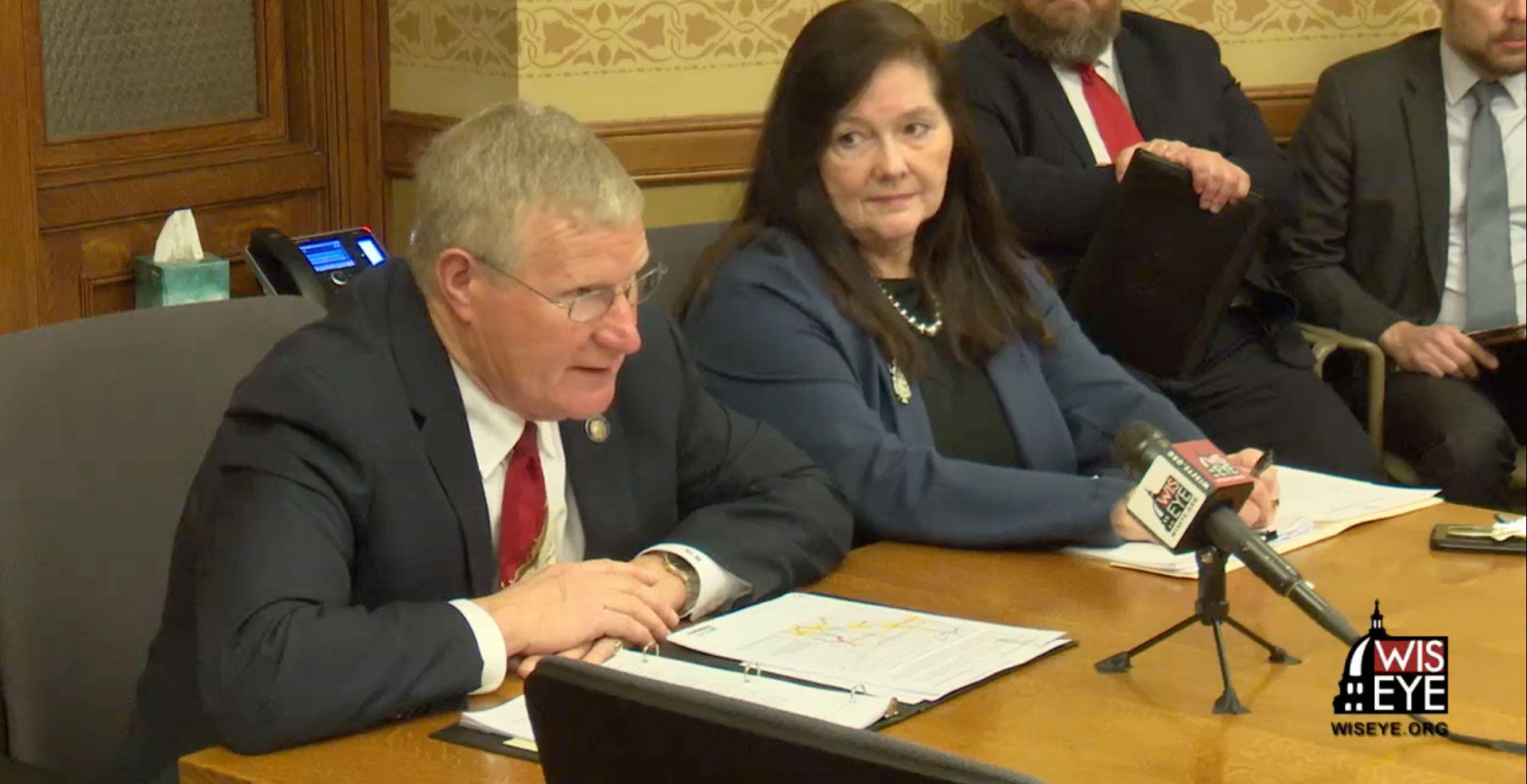
December 21, 2023
By Lane Kimble
MADISON, Wis. — In the not so distant future, you could pull up to a Kwik Trip (or any of the many fine fuel stations across Wisconsin) and notice a new price illuminated next to unleaded, premium, and diesel: dollars per kilowatthour.
Lawmakers are working to allow places such as gas stations, convenience stores, and restaurants to charge for electric vehicle charging, with three cents for every kWh sold going into the state Transportation Fund.
The Senate Committee on Utilities and Technology held a public hearing Tuesday for SB 791 and 792, where testimony was largely supportive of the measures. The legislationremoves the restriction that only utilities may sell electricity.
“We talked to a lot of people over the last months as we put this thing together,” bill co-author Sen. Howard Marklein said during the hearing, naming the Departments of Transportation, Revenue, League of Wisconsin Municipalities, and the Counties Association, among others. “There’s been a lot of input on this bill and we hope in the end that it’s bipartisan.”
A good deal of federal funding is at play. The Bipartisan Infrastructure Law earmarked $7.5 billion to build out the nation’s EV charging infrastructure. Wisconsin would be in line for $78 million, helping build about 65 level-3 fast chargers along the Interstate system, in addition to US and State highways 151, 53, 51, 29, 8, and 2.
The 80-20 federal grants must go toward private industry to build out, operate, and maintain the chargers. State and federal laws prohibit placing any sort of commerce at highway and freeway rest stops.
WisDOT staff testified that 85% of the state’s nearly 12,000 highway miles would be within 25 miles of a charger. Currently, there are only four locations across the state (Oak Creek, Madison, Tomah, and Eau Claire) with similar infrastructure. (Pages 31 and 32 of this document offer maps to demonstrate this.)
“Not only are we talking about the availability of energy but the diversity of allowing those who own electric vehicles to be commuters… And of course, tourism. So, I think this is definitely a worthy bill,” co-author Rep. Nancy VanderMeer said.
Just how much could the 3-cent tax produce, supplementing the gas tax and helping build and maintain roads and bridges?
“Your question is a brilliant question,” Marklein told Sen. Romaine Quinn as people in the hearing room laughed. “For which I don’t have an answer because we just don’t know. We don’t know what the uptake is… It’s a brand new industry.”
Federal data shows there were more than 15,000 registered EVs in Wisconsin at the end of 2022. It was 9,000 in 2021. Marklein says his bills are modeled largely around a new law in Iowa, which also imposed a 3-cent tax.
Representatives from WisDOT, Tesla, Kwik Trip, and the League of Wisconsin Municipalities all testified either for information or in favor of the bills, but offered some amendments they suggested would be slight tweaks to the bill’s language. Any amendments would need to be approved in the related Senate and Assembly committees before going to the floor for a full vote.
The 2024 Legislative session wraps up in early spring.
